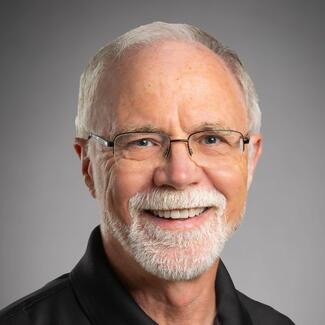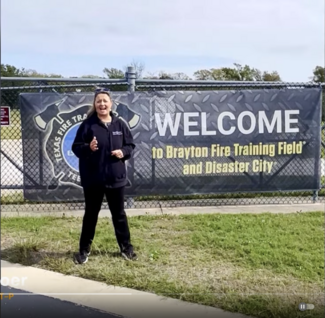Lawsuit Filed Over Fla. DNR Snafu
July 23--Marjorie Mangiaruca suffered from Alzheimer's disease for years, and before she developed significant dementia, told her family she did not want to be resuscitated should a dire medical crisis occur.
But her wishes were not followed when staff at a Central Florida senior health-care home found Mangiaruca gasping for air in October 2011, her family members say.
Paramedics were called, and ultimately, they performed CPR, a tracheostomy, and injected Mangiaruca with drugs to restart her heart.
Mangiaruca's daughter, Sharon Hallada, was later forced to make a decision she shouldn't have had to: to remove her mother's ventilator and allow her to die.
Hallada has filed suit in Polk County against Oakbridge Healthcare Center and Lakeland Regional Medical Center, where a physician signed a do-not-resuscitate order, but it wasn't transferred to the nursing home.
Experts say such cases demonstrate the need for people of all ages to have clear end-of-life wishes, and at the same time, show why health-care providers should make it a priority to know what their patients want.
"I think it's very important," Hallada said. "The majority of people don't like to talk about death issues or end-of-life issues. As I got older, I realized that things like this are part of life. They have to be discussed."
Kathryn Tucker, director of legal affairs for Compassion & Choices, the nation's leading end-of-life choices advocacy group, said cases such as Mangiaruca's are not rare.
Even when people do everything correct and make it clear what they want, "there's a significant problem with those issues not being honored," Tucker said.
"It's a pretty big problem that is being wrestled with here," she said.
Tucker said Hallada and Mangiaruca did everything they were supposed to.
Mangiaruca told Hallada she did not want a prolonged death or to have her life extended by artificial means, according to the lawsuit. Mangiaruca gave her daughter full legal authority and decision making through a medical power of attorney.
On Sept. 29, 2011, Mangiaruca was taken to the emergency room at Lakeland Regional Medical Center for weakness and increased confusion, and she was admitted for treatment of a urinary-tract infection.
Hallada told a physician about her mother's wishes, and the doctor signed a do-not-resuscitate order, typically known as "DNRO."
Mangiaruca was discharged from the hospital Oct. 6, 2011, and admitted to Oakbridge Healthcare Center.
But during that transfer, the lawsuit claims, hospital staff failed to give the nursing home the doctor's signed do-not-resuscitate order.
On Oct. 10, 2011, a nursing-home employee found Mangiaruca with blue lips and gasping for air.
Paramedics were called, and on the way to the hospital, they performed CPR and other medical procedures to revive Mangiaruca.
On Oct. 12, 2011, Hallada directed the hospital to disconnect her mother's ventilator. Mangiaruca died five days later.
Representatives for Lakeland Regional Medical Center and Oakbridge Healthcare Center would not comment, citing the ongoing litigation.
Tucker said each state has an advance directive form people can use to spell out what type of medical intervention they want or don't want. It's key to discuss your wishes and share copies of the form with your relatives and physicians.
Tucker said in addition to those steps, people should appoint someone to be a decision maker in the event they cannot communicate their wishes to medical professionals.
Hallada is seeking financial damages from the hospital and senior health-care home for negligence, emotional distress, elder abuse and other alleged violations.
She wants to make sure hospitals and nursing homes better train their staff members to prevent similar incidents from devastating other families, she said.
"You can be very responsible and do what you've been advised, and yet you might still have your wishes trampled on," Tucker said.
apavuk@tribune.com or 407-420-5735
Avoid confusion with end-of-life directives
What is an advance directive? It is a written or verbal statement about how you want medical decisions to be made if you are not able to make them yourself. Some people make advance directives after being diagnosed with a life-threatening illness. Some people document their wishes when they are healthy, often as part of the estate-planning process.
Does an attorney have to prepare the advance directive? No, though you can consult one. However, an advance directive, whether it is in writing or a verbal statement, needs to be witnessed by two individuals. At least one of the witnesses cannot be a spouse or a blood relative.
What should I do with my advance directive? If you designate a health-care surrogate and an alternate surrogate, discuss your medical wishes and give them a copy of the form.
Make sure that your health-care provider, attorney and significant people in your life know that you have an advance directive and where it is located. You can also give them a copy.
Keep a note in your purse or wallet that states you have an advance directive and where it is located.
More information: floridahealthfinder.gov/reports-guides/advance-directives.aspx
SOURCE: Florida Agency for Health Care Administration
Copyright 2013 - Orlando Sentinel
















